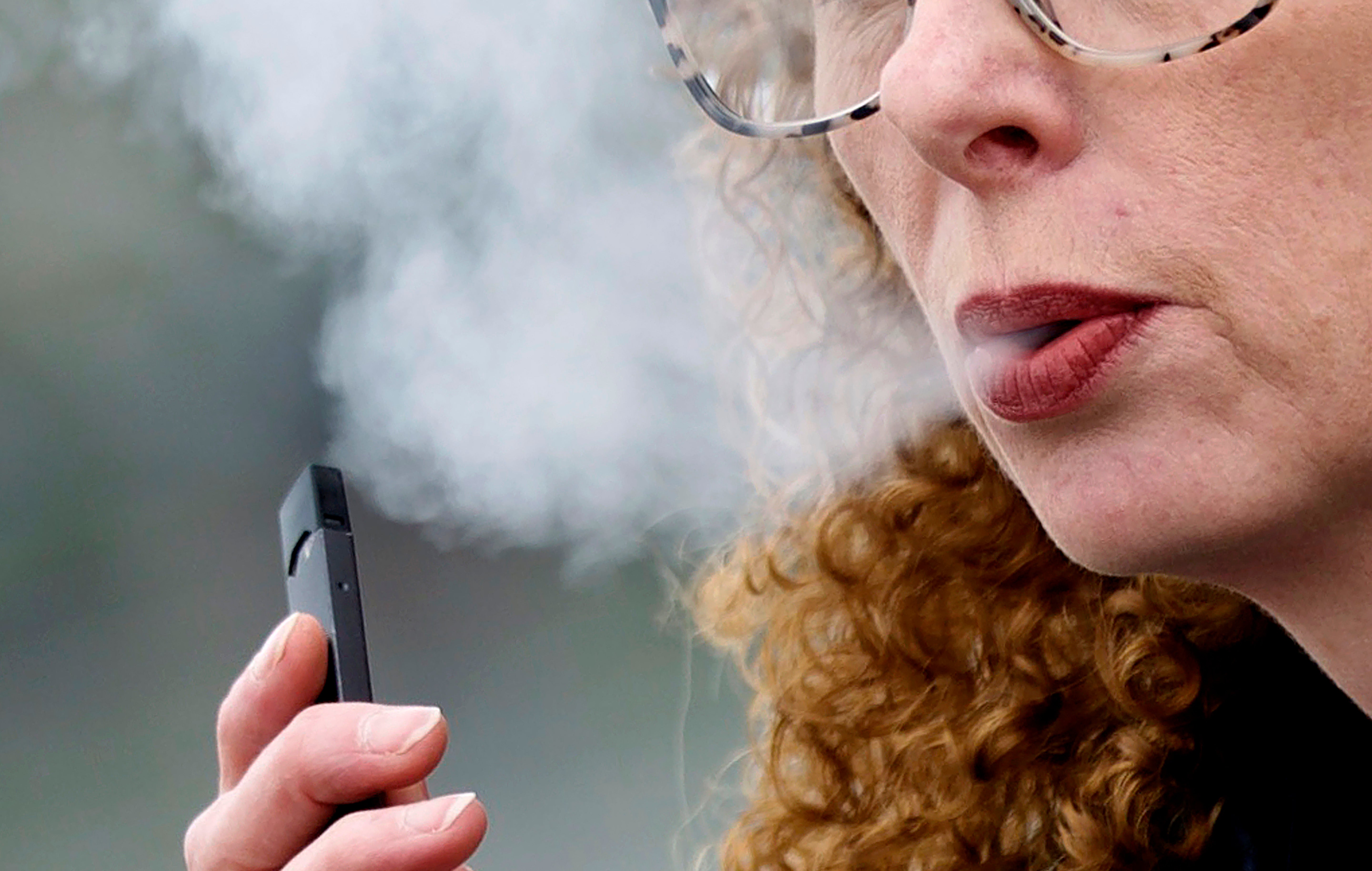Vaping may ‘wake up’ cancer cells and trigger wave of disease in a decade
Around 3.6 million Britons use e-cigarettes, around seven per cent of the adult population

Your support helps us to tell the story
From reproductive rights to climate change to Big Tech, The Independent is on the ground when the story is developing. Whether it's investigating the financials of Elon Musk's pro-Trump PAC or producing our latest documentary, 'The A Word', which shines a light on the American women fighting for reproductive rights, we know how important it is to parse out the facts from the messaging.
At such a critical moment in US history, we need reporters on the ground. Your donation allows us to keep sending journalists to speak to both sides of the story.
The Independent is trusted by Americans across the entire political spectrum. And unlike many other quality news outlets, we choose not to lock Americans out of our reporting and analysis with paywalls. We believe quality journalism should be available to everyone, paid for by those who can afford it.
Your support makes all the difference.Vaping could cause a new wave of cancer in ten years’ time, according to scientists.
Researchers at the Francis Crick Institute (FCI) say while vaping is safer than smoking cigarettes, the long-term health risks are unclear.
Around 3.6 million people in Britain smoke e-cigarettes and are commonly used by ex-smokers to help them quit.
Professor Charles Swanton, clinical scientist at the FCI and chief clinician at Cancer Research UK, says vaping poses a potential threat to people’s health.
“I don’t think we can say vaping is necessarily a safe option to quit smoking. It may be safer but that doesn’t mean it’s safe,” he said.
“We don’t know for certain that vaping won’t cause lung cancer ten years from now.”

Researchers at the FCI conducted studies to understand why some of those diagnosed with lung cancer in the UK – around one in eight patients – are non-smokers, despite smoking being one of the leading causes for the disease.
They used studies on humans and mice which measured exposure to sooty pollution particles in the air that can cause the growth of cancerous cells in the lungs.
Their evidence suggests that the pathway that causes tumours in non-smokers is different to those caused by smoking, which is thought to trigger a direct mutation to DNA that can result in cancer.
Their findings suggests that irritants such as air pollution cause inflammation, which is then followed by a healing process that “wakes up” dormant cells that can cause cancerous mutations and researchers worry that vaping may trigger the same process.
While scientists believe anti inflammatory drugs could help stop the process which can cause cancer, they warn this could be years away.
Professor Swanton said: “The mechanism we’ve identified could help us to find better ways to prevent and treat lung cancer in never smokers. If we can stop cells from growing in response to air pollution, we can reduce the risk of lung cancer.”
Dr William Hill, another researcher at the FCI, said: “Finding ways to block or reduce inflammation caused by air pollution would go a long way to reducing the risk of lung cancer in people who have never smoked.”
Join our commenting forum
Join thought-provoking conversations, follow other Independent readers and see their replies
Comments